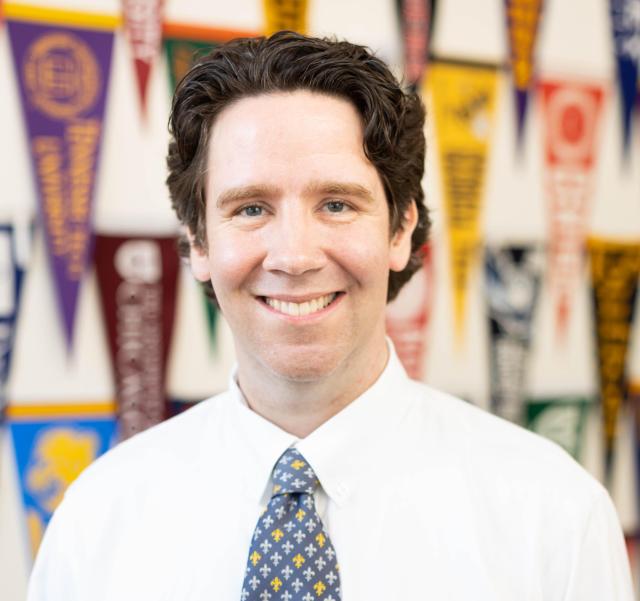
SEOUL, July 21 (AJP) - For students looking to study abroad, particularly in the United States, the current climate is fraught with uncertainty. With concerns around global conflicts and sharp political changes, as well as the impact of COVID-19 still fresh in our memory, a growing number of students are shifting perceptions about traditional destinations for university overseas.
Students are also considering more diverse options. In my capacity as Director of University and Career Counselling at Dulwich College Seoul, where we have over 46 different nationalities represented in our community, I am seeing greater diversity in the universities that our students attend. Our most recent 2025 graduates have been accepted to universities in six different countries across multiple continents. These include prestigious institutions in the U.S. and Britain, as well as Canada, Ireland, Japan, and Switzerland.
I could also attest to how Korean students are sought-after across the world, not least due to Korea’s strong educational and cultural reputation. As the list of appealing college options becomes more extensive than ever, I would like to offer some advice to Korean students. I have had access to the global perspective and benefited from working on both sides of the application process as an admission counsellor at Seattle University and an Associate Director of Admission at both Boston College and Babson College. Here are some guiding thoughts.
1. Why study abroad at all?
A university education is about more than lectures and exams - it is about building critical thinking and life skills. Students who go abroad can benefit from rich and formative cultural experiences as they build global citizenship, cross-cultural understanding, resilience, and independence. These attributes are invaluable in today’s world, including the global job market. You may want to ask yourself where you want to live and work after graduation. What kind of lifestyle do you envision? Do you want to obtain an advanced degree abroad? The answers to these questions can point clearly in the direction of one or more potential foreign university destinations.
2. Broaden the scope of possibilities
Aside from Indian and Chinese counterparts, Koreans made up the biggest number of foreign students in the United States during the 2023-24 school year, according to the Institute of International Education. While there are many great U.S. options, do not limit your search based on what others have done in the past. Our students are exploring colleges in places as diverse as Australia, the Czech Republic, Hong Kong, the Netherlands, and Spain. The idea of studying in Europe or another country in Asia might have felt unconventional a decade ago, but now it is becoming mainstream. This is driven in no small part by the growing recognition of the high quality of education in many institutions across the world. You can be practical with your considerations, too. For instance, a student aspiring to work in Europe may find more networking and job placement opportunities by studying at a European institution. Similarly, someone planning to return to Asia might benefit from the cultural and language familiarity of studying in Japan or Hong Kong.
3. Do not be guided by prestige alone
My next point is that while world-renowned universities in traditional college destinations do carry a certain prestige, global rankings do not necessarily capture student satisfaction, faculty interaction, or career outcomes. Therefore, students should not let prestige alone be their guiding attraction. Instead, focus on which university best fits your academic interests, personality, goals, and preferred lifestyle. In addition, note that smaller or lesser-known institutions can often provide more personalized support, closer student-faculty relationships, and strong alumni networks.
4. Consider the cost
Studying abroad can seem prohibitively expensive, but it does not have to be. Countries like the Netherlands and Japan offer world-class programs for relatively low tuition costs. Canadian and Australian institutions allow students to work part-time, easing the financial burden of studying in those places. In the U.S., despite its reputation for high costs, top-performing Korean students regularly receive substantial merit-based scholarships. It can pay off to do the research and see what is on offer. Some schools even offer cost-saving pathways like dual-degree programs or fast-tracked graduate options.
5. To visit or not to visit
Virtual tours and webinars have become sophisticated since COVID-19. They allow families to explore campuses, attend information sessions, and speak to student ambassadors without leaving home. However, if travel is possible, try to visit a few universities, especially if you are already going abroad for a vacation or summer program. It can be very helpful to get the feel of walking a college campus, meeting faculty staff, and imagining your life there. Either way, I recommend that you ask what support services are available to international students, what kind of orientation and mentorship programs exist, and what the graduate outcomes are. Many institutions are also happy to arrange chats with student ambassadors or regional admissions officers.
Ultimately, you should let your interests and personality guide this journey. It can be daunting, but also incredibly exciting. University presents an opportunity for self-discovery, shaping your adult identity. The results are often transformative. A well-chosen international university can be the gateway not just to career success, but to lifelong confidence that can take you anywhere in the world.
[ This article was contributed by Paul Sweet, Director of University and Career Counselling at Dulwich College Seoul]
Copyright ⓒ Aju Press All rights reserved.




